

| Home | Log In | Register | Our Services | My Account | Contact | Help |
You are NOT currently logged in
dai oldenrich - 01 Sep 2006 13:32
click your browser refresh button to update charts

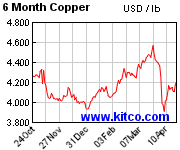
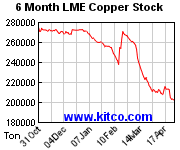
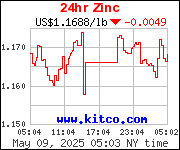
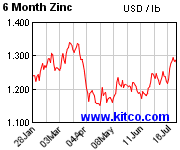
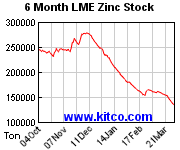
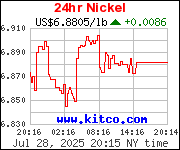
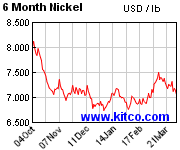
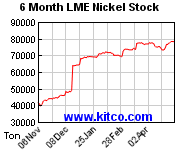
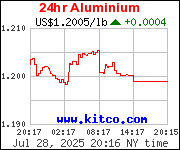
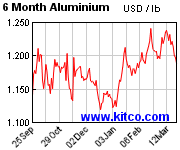
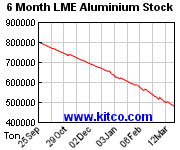

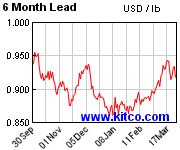
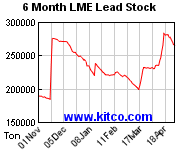
Also see: gold charts here silver charts here platinum charts here
e t - 07 May 2007 17:06 - 179 of 181
FT - May 6 2007
Chinas stock market
However you measure it, the Chinese stock market is a bubble. Top cadres have warned as much. New offerings are doubling in value on day one and shareholder accounts are multiplying at a phenomenal rate. So far this year, the domestic currency A share market is up 43 per cent and daily turnover exceeds $30bn.
The authorities face a stark choice: act now to deflate the bubble or wait for the inevitable implosion and equally inevitable street protests. But Beijing has limited tools with which to take pre-emptive action. Verbal warnings and the stemming of credit by hiking banks reserve requirements have both failed. Interest rates would need to be sky-high before investors spurned the stock market, up almost 1 per cent a day in the past two months, while bank deposits currently yield negative returns in real terms.
____________________________________________________________________
.....................and so on and soforth. It all just has to go pop some time soon.
Anyone believing that the present frenzy in rising markets will continue much longer is simply deluding themselves.
It's a real world that we live in and a very simply fact of life is 'what goes up must come back down again'.
Often with quite a bump!
cynic

 - 07 May 2007 18:11
- 180 of 181
- 07 May 2007 18:11
- 180 of 181
don't confuse commodity requirements with a rising stock market or even rising commodity prices, both of which can and often are driven by speculation ...... although nothing rises or falls inexorably, it is a matter of fact that China (and India and Pakistan) not only needs huge imports of raw materials to satisfy its domestic demands, but China (and India and Pakistan) has become one of the very top manufacturing and exporting countries in the world.
e t - 10 May 2007 23:17 - 181 of 181
Copper Falls Most in Three Months on Signs of Slowing Demand - By Millie Munshi
May 10 (Bloomberg) -- Copper futures in New York tumbled the most in three months on signs that demand may slow in China, the world's largest user of the metal used in pipes and wires. Stockpiles in Shanghai Futures Exchange warehouses have more than doubled this year to the highest since December 2005, indicating that China may buy less copper from overseas. Futures had climbed 32 percent in the two months before today as China's imports surpassed last year's pace for four straight months. ``We're expecting to see a deceleration in Chinese imports,'' said Mark Liinamaa, a metals analyst with Morgan Stanley in New York. ``It's likely that they got a little ahead of themselves in the first part of the year and imported more than their overall need.''
Copper futures for July delivery fell 11.25 cents, or 3.1 percent, to $3.5665 a pound on the Comex division of the New York Mercantile Exchange. The drop was the biggest since Feb. 2, when most-active futures fell 4.3 percent during a rout in global equity markets. ``A large reason you've seen copper pullback is because China has slowed down a little bit in their buying,'' Kevin Kerr, president of Kerr Trading International in Wilton, Connecticut, said in an interview May 7.
Metal for immediate delivery in Changjiang, Shanghai's biggest cash market, fell as much 2.6 percent today. Cash prices have remained lower than front-month futures prices, suggesting enough supplies are in the spot market to meet demand.
Pulling Out
``People have started pulling out of the market,'' Liinamaa said. Morgan Stanley estimates that copper will average $3.05 a pound this year, down 14 percent from today's close. The metal has averaged $2.98 so far this year. Traders who follow historical price charts also sold copper today, said Marc Kaplan, president of Mews Metal Trading LLC in Verona, New Jersey. Copper's so-called relative strength index, which gauges how rapidly prices have gained or fallen, reached 71.3 on May 1. Readings above 70 indicate a price may be poised to fall. ``Prices had been moving very quickly,'' Kaplan said. ``The price has probably gotten too high, and people are starting to take some money off the table.''
On the London Metal Exchange, copper for delivery in three months fell $160, or 2 percent, to $7,890 a metric ton. The metal reached a record $8,800 on May 11, 2006. A futures contract is an obligation to buy or sell a commodity at fixed price for delivery by a specific date.

